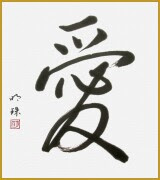The view of lady and gentleman in Victorian society is specifically about status. It is explained that the terms "lady" and "gentleman" were positions of rank. Most people strived to reach that status while those privy to it didn't want to lose it. Those that were born into aristocracy were considered ladies and gents regardless of their desire for the position. They were treated as though they were royalty. They were distributed into their social ranks based on their "manners, money, birth, occupation, and leisure time" 555. For example, if apart of the middle class, the more manners, or leisure time you possessed the higher your status. The amount of education amongst the middle class was also a clear indication of social division. In boarding schools, the emphasis was placed on character over intellect. "public schools taught boys to assimilate the manners and customs of those above them socially" this gives them the mark of upper class training while being apart of the middle class.
Women or young girls didn't necessarily receive education to be considered a lady. Her status was determined by her parent's status or her husband's once she married. Ironically, unproductive leisure was a sign of rank. Most of the time people would consider activity the most prized possession of this time. However, it could be that even today those that have the ability to travel, and spend money without concern are the highest ranking people in society. This idea is brought out by Sarah Stickney Ellis. She discusses in The Women of England: Their Social Duties and Domestic Habits that women should be glad to be less powerful than men because then they don't have to think. "It is not to be presumed that women possess more power than men; but happily for them, such are their early impressions, associations, and general position in the world, that their moral feelings are less liabble to be impaired by the pecuniary objects which too often constitute the chief end of man, and which, even under the limitations of better principle, necessarily engage a large portion of thoughts" 557. Women are to be staples in the household to give their husband a safehaven from the outside world.
Sunday, June 22, 2008
Subscribe to:
Post Comments (Atom)

4 comments:
Nice job Nicole. I really like how you talked about wealthy people of this day and age travel a lot and spend vast amounts of money and how that matched the lifestyle (not exactly of course) of ladies and gentlemen of the Victorian age. You really showed that times haven't really changed much at all.
Nicole,
Good overview of the readings on Victorian ladies and gentlemen; your generalizations are mostly correct. Not until the end of your post do you focus on any particular author, though, or even mention a name of one. When you do quote Ellis, you don't have room to discuss that passage. Be sure to get into the specifics and analysis sooner.
I find it interesting about the status of a lady is so much different from today. The normal difference of education and family standings affect status, yet for women, they were not able to pursue their education to help their ranking. It seems like society does seem to continue the longing to reach the higher class.
I think one big difference is the value of a trophy wife. Like you point out that having absolutely nothing to do all day is a symbol of status for women. I think that's still true today, but at the same time there are some couples that I would consider "power couples" because the wife plays an active role in business or has her own thing going and as a result they're incredibly rich. It's funny to think now that men never considered going into business with their wives, especially since I can see couples that have done so very successfully in my time.
Post a Comment